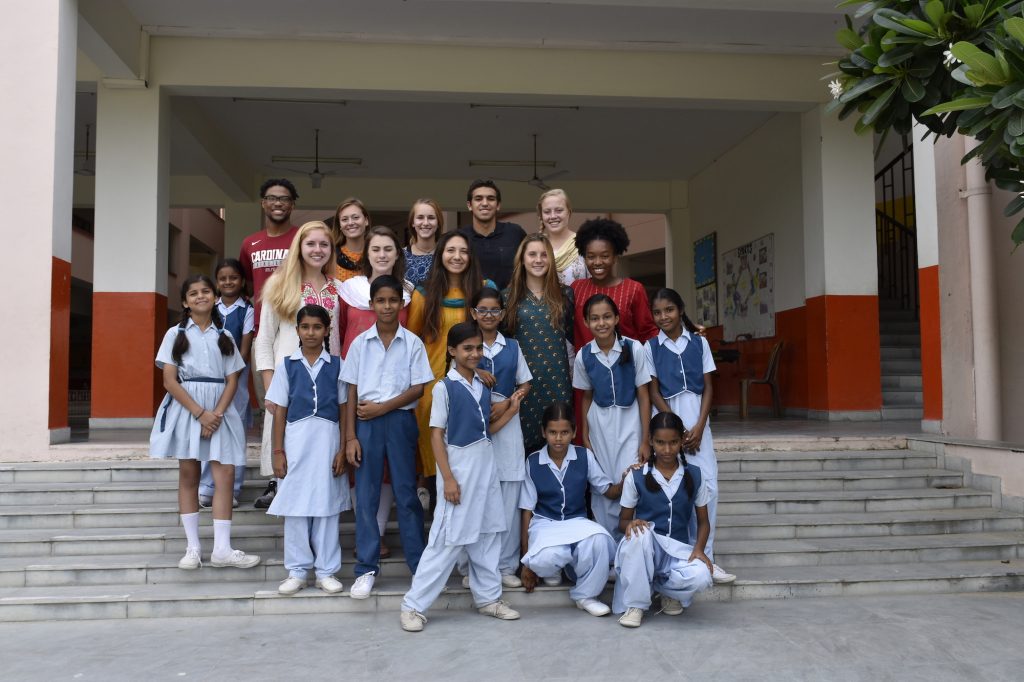
One week since my return to the US and I still am not sure how best to describe or sum up my three weeks in Delhi, India. It would be difficult for me to explain the profound impression that this experience had on me, or compare it to anything else that I have ever done. Every preconceived notion about India that I had was wrong in some way or another. Above all I think the countless surprises and adjustments are what contributed to this trip full of the unexpected.
Trying to remember what I had expected before the trip is hard to do without thinking of what it really was. At some point along the selection process for the ACE program I was asked what I thought would be the most difficult part of the trip. My response to that question ended up being the only correct prediction that I think I had.
What I believed would be the hardest part would be seeing people living in difficult economic conditions and not being able to help them. While it was hard to see the way some people were living and knowing there was not much we could do to help in the moment, I think seeing these things helped my understanding of different ways of life.
As a member of Duke’s Innovation and Entrepreneurship certificate program, one of the main focuses in the coursework is learning how to identify problems first and solutions second. Observing other lifestyles and the things people have to go through led me to a shift in perspective on what is important.
I have a better idea now of the real problems facing people in countries like India, and while I cannot do much now to help directly, I hope that eventually I will be able to make a difference. Not only did I broaden my understanding of certain issues facing India, but I was also inspired by the culture of problem solving and innovation that I came to know during my trip.
It was tough to be in Delhi at times. The variety of colors, new smells and loud noises were overwhelming every so often. This was true all the way until my last day there. Beneath all the apparent confusion is a culture engrained with change-makers. It can be hard to spot at first, and it was not until the end of my second week working at Vidya School that I started to notice the students’ drive to develop and improve themselves academically to change the world around them.
The students were extremely eager to learn, and in conversations with some of the older kids, that drive stemmed from their individual desire to expand their horizons and improve the lives of themselves and their friends and families. They were extremely aware of the problems that were most in need of solving, which was interesting to hear coming from children in their early teens. Looking back, I was completely unaware of societal issues at their age. It was extremely impressive having conversations with them, learning their opinions on how to address certain things, and hearing their certainty in being able to address them once they finished college.
Many of the students asked me about what I am studying at Duke, and when I answered they would follow up with even more questions. One of my sixth-grade students and I spoke at length about economics, my major, after class one day. A ninth-grade boy asked me a question about Bitcoin, and when I could not come up with an answer, he proceeded to explain the way cryptocurrency works to me in detail for almost 10 minutes. A few of the soon-to-be graduates of the school asked me and the other ACE members about college in the US, all very sure that they would be attending someday.
For students whose parents had little to no education, the value they placed on school and how it can lead to major change and innovation in the future was admirable to say the least. They accepted their circumstances, but were eager to learn and help those around them.
Throughout this last week back in the US I have had multiple people ask some variation of “how is it there?” My response to that question has developed as I have had more time to think about the best way to answer it. While I am still not entirely sure there is a perfect way to go about describing Delhi, let alone India, hopefully this post gives a somewhat clearer picture than I have been able to come up with on the spot these last few days.
India by and large is a place of contradictions. We were told this by many of the guest speakers throughout the three weeks in Delhi; however, I did not really understand what they meant until I reflected more on my time there. It is a country full of innovators, yet it values the way things have been done for millennia. It is a country on the verge of massive economic development and modernization, but poverty and sanitation issues are still apparent. It is a world leader in science, math and technology; however, 80 percent of the population still leads an agrarian lifestyle. Above all, India is an extremely unique, vibrant, diverse country and trying to define it in one way is simply not possible.
